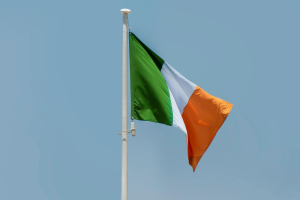Top Stories
Taoiseach Confirms No United Ireland Vote Before 2030

UPDATE: In a surprising announcement, Taoiseach Micheál Martin has confirmed that there will be no vote on a United Ireland before 2030, despite assertions that unity makes “logical sense.” This declaration comes as both a setback and a critical moment for discussions surrounding the future of Ireland.
During a press briefing earlier today, Martin emphasized that significant work remains before such a pivotal vote can take place. He highlighted the importance of ensuring that the Good Friday Agreement “fills its potential,” indicating that further progress is necessary to unify the nation effectively. The Taoiseach’s remarks align with recent developments regarding the Legacy Agreement, which aims to mend relations between Dublin and London following the turmoil of the Northern Ireland Troubles Act. This agreement was only finalized last week.
Martin stated, “This British government is working with us in a practical, open, transparent way, and we have a framework now to deal with legacy once and for all.” His comments signal a commitment to collaborative governance while acknowledging the sensitive nature of these discussions.
While the Taoiseach expressed skepticism about the term “border poll,” he reiterated the idea that unity could indeed unite the people of Ireland. “We would unite the people of Ireland,” he asserted, reflecting a vision for a cohesive future.
The response from Sinn Féin has been notable, as the party has pushed for a United Ireland vote before 2030. However, Martin critiqued Sinn Féin for what he described as a fluctuating stance on the border issue, stating, “They downgraded the border poll because they did their own opinion polls and focus groups, and they said it’s not traveling.” His comments suggest a growing divide in strategies among political leaders regarding the future of Ireland.
This announcement comes at a critical time, as many in the country feel the effects of political uncertainty. Martin’s confirmation of the timeline—or lack thereof—will likely fuel ongoing debates among politicians and citizens alike about Ireland’s future.
As discussions continue, eyes will be on how this announcement impacts the political landscape in both Northern Ireland and the Republic. The implications of the Taoiseach’s comments could resonate far beyond 2030, influencing public sentiment and political momentum in the years to come.
Stay tuned for further updates on this developing story as the situation evolves.
-

 Top Stories2 months ago
Top Stories2 months agoTributes Surge for 9-Year-Old Leon Briody After Cancer Battle
-

 Entertainment3 months ago
Entertainment3 months agoAimee Osbourne Joins Family for Emotional Tribute to Ozzy
-

 Politics3 months ago
Politics3 months agoDanny Healy-Rae Considers Complaint After Altercation with Garda
-

 Top Stories3 months ago
Top Stories3 months agoIreland Enjoys Summer Heat as Hurricane Erin Approaches Atlantic
-

 World4 months ago
World4 months agoHawaii Commemorates 80 Years Since Hiroshima Bombing with Ceremony
-

 Top Stories2 months ago
Top Stories2 months agoNewcastle West Woman Patricia Foley Found Safe After Urgent Search
-

 Top Stories4 months ago
Top Stories4 months agoFianna Fáil TDs Urgently Consider Maire Geoghegan-Quinn for Presidency
-

 World4 months ago
World4 months agoGaza Aid Distribution Tragedy: 20 Killed Amid Ongoing Violence
-

 World4 months ago
World4 months agoCouple Convicted of Murdering Two-Year-Old Grandson in Wales
-

 World4 months ago
World4 months agoAristocrat Constance Marten and Partner Convicted of Infant Murder
-

 Top Stories3 months ago
Top Stories3 months agoClimbing Errigal: A Must-Do Summer Adventure in Donegal
-

 Top Stories3 months ago
Top Stories3 months agoHike Donegal’s Errigal Mountain NOW for Unforgettable Summer Views









